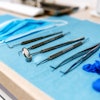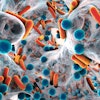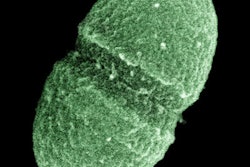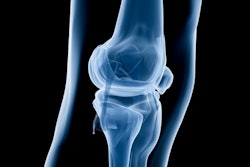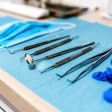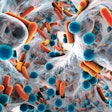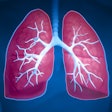
The number of children who have been hospitalized for dental infections after having pulpotomies at a Southern California dental clinic has risen to 37. Health officials have traced the infection to the clinic's water lines, and the state dental board is investigating possible breaches of infection-control protocols.
The children, ages 3 to 9, were hospitalized at Children's Hospital of Orange County after developing slowly progressive oral cellulitis, often with dental abscess and/or cervical lymphadenitis, according to the Orange County Health Care Agency. The children had pulpotomies at the Children's Dental Group in Anaheim, CA, between March 14, 2016, and July 28, 2016, the agency said.
A total of 55 children have been evaluated at the hospital, and five remain hospitalized after being treated at the clinic. A 7-year-old girl had oral surgery to remove an infected jaw bone and three teeth after having a pulpotomy at the clinic, according to the Children's Hospital of Orange County.
"Most of the children will need surgery and will need to be treated with IV antibiotics," hospital spokesperson Denise Almazan told DrBicuspid.com.
Infections traced to clinic
In early September, community health providers reported that many children had developed apparent mycobacterial dental infections after being treated at the clinic, Orange County Health Care Agency spokesperson Rachel Selleck wrote in an email to DrBicuspid.com.
“Most of the children will need surgery and will need to be treated with IV antibiotics.”
"We have isolated the mycobacterium in the onsite water processing system that is used to treat patients having dental procedures," Selleck wrote.
Mycobacterium abscessus are commonly occurring bacteria in the environment that generally pose minimal risk, Selleck said. In rare instances, water sources within facilities can become contaminated with higher levels of bacteria, increasing the risk to patients who received pulpotomies or other invasive procedures, she said. The infection causes localized dental abscesses, but it may infect nearby bone. Treatment generally involves IV antibiotics and treatment of the site.
The bacterium has not been isolated from the clinic's tap water so far, Selleck said. Orange County health officials ordered the clinic to stop using its water for patient care on September 15 until the system has been replaced, Selleck said.
Water lines must be flushed
The California Code of Regulations (16 CCR § 1005) mandates that dental water lines be "purged with air or flushed with water for at least two minutes prior to attaching handpieces, scalers, air water syringe tips, or other devices" every day. The regulation also requires that "dental unit lines and devices shall be flushed between each patient for a minimum of 20 seconds."
The U.S. Centers for Disease Control and Prevention (CDC) "recommends that all dental instruments that use tap water should be run to discharge water for 20 to 30 seconds after each patient and for several minutes before the start of each clinic day."
A former employee at the clinic said the water lines were not flushed properly to meet infection-control protocols, according to an October 11 CBS News story. In that interview, the employee also said there had been a lot of staff turnover, and staffers were told to increase production. She also said that most of the children were low-income patients covered by the state's dental Medicaid program, Denti-Cal.
The clinic is working with the CDC, and the Orange County Health Care Agency has approved the clinic's plan to install a new water system. The clinic is contacting the parents of all children who received pulpotomies at the clinic since March 14, 2016, Selleck said.
The Dental Board of California is investigating possible breaches of infection-control protocols at the clinic.
"We're investigating whether the clinic followed protocols for infection control that are supposed to be adhered to in the office," Joyia Emard, a spokesperson for dental board, told DrBicuspid.com.
Clinic CEO Sam Gruenbaum said a new water system will be installed by October 31, 2016, which includes clean water sources, institutional infection control and water routing devices, and ongoing monitoring of purification levels.
"Our doctors and staff have been working tirelessly to care for these patients since we first learned of this issue," he told DrBicuspid.com. "We are committed to supporting our caring doctors and staff in providing our patients with safe, quality care, and an excellent experience."

